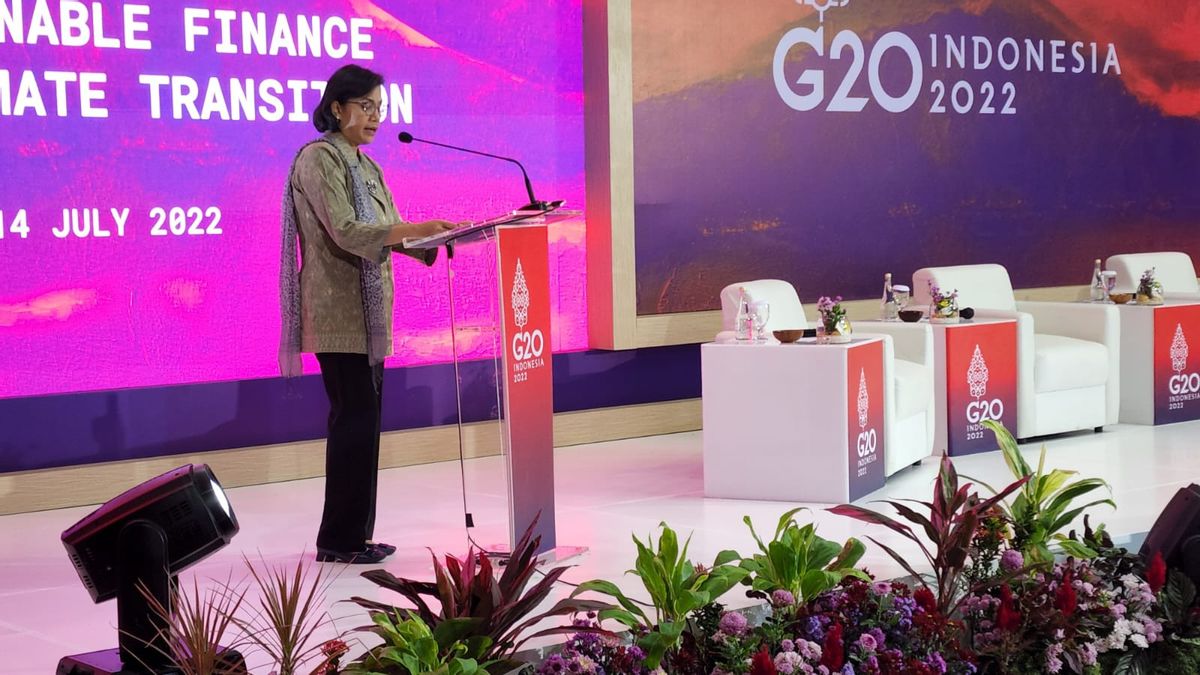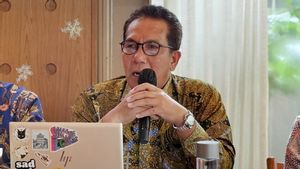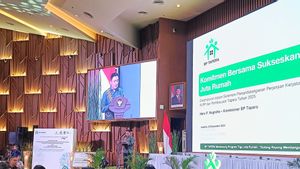JAKARTA - The Indonesian government affirms its commitment to reducing carbon emissions through the energy transition program.
In carrying out this process, of course, the government cannot ignore the condition of society and national economic growth.
Minister of Finance of the Republic of Indonesia Sri Mulyani assessed that in the energy transition process, Indonesia already has a series of programs.
However, the investment required for this clean energy project is not small.
Meanwhile, the position of the State Revenue and Expenditure Budget (APBN) is currently divided into social safety nets through a subsidy scheme.
"If we don't calculate it carefully, it will have very implications for the community. In fact, this will also have implications for PLN as our electricity company," Sri Mulyani told reporters, Sunday, July 17.
Sri Mulyani alluded to the high investment in the construction of new renewable energy plants (EBT) and also the step to retire the Steam Power Plant (PLTU) which is currently being carried out by PLN.
"Moreover, so far interest rates tend to be very sharp and this is very heavy. If there is no global support then this plan cannot be delivered quickly," said Sri Mulyani.
PLN President Director Darmawan Prasodjo explained that the current electric power capacity in Indonesia is around 63 gigawatts (GW).
Demand growth continues to increase every year so that by 2060 the electricity demand can reach 200 GW.
"To answer this challenge, PLN needs additional funding of at least USD 500 billion. So the only way forward is through collaboration of policies, strategies, and investments," said Darmawan.
However, he emphasized that PLN as a State-Owned Enterprise (BUMN) is not only tasked with carrying out the energy transition.
On the one hand, PLN is also tasked with reducing poverty by maintaining people's purchasing power.
"If the transition project depends on the government's budget alone, it will not be sustainable. Because there is a budget for stunting, poverty alleviation, and education for the poor which is also very important," said Darmawan.
He emphasized the importance of the collaboration of all parties to be able to succeed in Indonesia's steps in the energy transition.
“We need policy, technology and investment collaboration. Because the energy transition requires large funding. With this collaboration, we are aware that we are not facing this crisis alone," concluded Darmawan.
To note, the government has disbursed subsidies for electricity of Rp. 243.3 trillion and compensation of Rp. 94.17 trillion from 2017 to 2021.
This year, the government is still providing support for subsidies and compensation to customers of Rp. 125 trillion, which consists of subsidies of Rp. 62 trillion and compensation of Rp. 63 trillion.
The English, Chinese, Japanese, Arabic, and French versions are automatically generated by the AI. So there may still be inaccuracies in translating, please always see Indonesian as our main language. (system supported by DigitalSiber.id)








